Tadeusz Rolke's
Somewhat Older Photographs
by Marek Grygiel
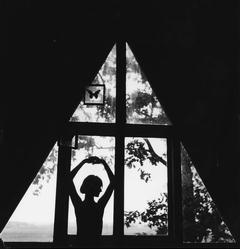
ADEUSZ ROLKE (b. 1929) began to photograph in 50's. It wasn't the most favourable period for the Polish photography. Especially hard was the first half of the decade with its domination of the socialist realism in visual arts. Photographic journalism being close to everyday life was subjected to censorship. Photographs in newspapers existed only as an extra to varnish the reality. Any attempts to surpass this conventionality were doomed to fail.
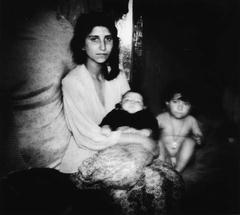
Tadeusz Rolke was taking his first pictures with a simple German made camera Welta. His photographs drawn attention of the well known photographer Adam Kaczkowski who was running a photographic studio in Warsaw at Nowy Swiat Street. This fact encouraged Rolke to take photography more seriously. He wanted to learn photography, but his plans were interrupted by his arrest after which he spent some time in jail as one of victims of Stalinism. The only job he could get after being released was the job of photographic laboratory assistant in the Polish Optical Works. Of course it was for him very unsatisfying work and after some time Tadeusz Rolke took up a job in the State Transparencies Company at Ogrodowa St. in Warsaw.
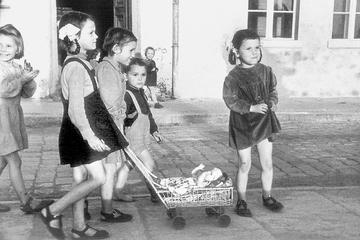
The monotonous and simple tasks he was given there compelled him to - to form a contrast against it - take up jornalistic photography more seriously. In 1958 he was awarded with two second prizes at the National Exhibition of Photography. He didn't win the first prizes since the reality he had been depicting wasn't properly made up. His pictures showed the hard life of Gypsies in small towns surrounding Warsaw.Taking photographs directly in streets and attempts to make socially involved photographic reports condradicted the rules of photography of these days, in spite of that some photographers, especially from "Swiat" and "Stolica" weekly magazines, tried to overcome such situation.
Nevertheless a critic of "Trybuna Ludu" daily declared Rolke the infant prodigy of the Polish photography. This first art success caused that he was invited to be member of the Union of Polish Art Photographers and helped him to become a photographer of "Stolica" magazine soon. Unfortunately this cooperation ended after three years - the reason being the pictures comissioned by "Paris Match" - one of the most popular French weekly magazines. The cooperation with capitalist press was then doomed to fail.
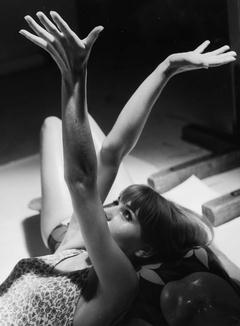
Fashion collection by Grazyna Hase, Paris The result of this rather unpleasant experience was invitation to cooperation from Lech Zahorski, art director of the monthly magazine "Polska". This was the magazine, in spite of its some limitations, of high standard and of great prestige on then poor press market of our country. Tadeusz Rolke used fully the chance he was given and became one of the most creative photographers of the next decade. He worked also as a fashion photographer, mainly for the weekly "Przekroj" from Cracow.
He became the close friend of Roman Cieslewicz, who run legendary "Ty i ja", the best magazine of the 60's. The friendships and close contacts of Tadeusz Rolke with the most prominent artists allowed him to take portraits of such well known personalities as Xawery Dunikowski, Henryk Stazewski, Alina Sapocznikow, Tadeusz Kantor, Piotr Skrzynecki and many others. Rolke, probably the only photographer being recognized by and enjoing confidence of the artists had an opportunity to take unique pictures during the early days of the Krzywe Kolo Gallery and later of the Foksal Gallery in Warsaw.
Piotr Skrzynecki, artist, poet 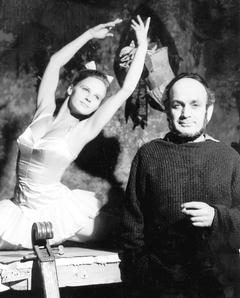
The political tensions of the late 60's, the events of March '68 and the invasion of Czechoslovakia by the Warsaw Pact armies caused that he had left Poland for the next decade and settled in Hamburg, Germany. In spite of very difficult beginings and hardships of exile life (for six years he wasn't allowed to come back to Poland) he didn't give up photography. He prepared in cooperation with the organisation "Action the Signs of Expiation" the exhibition which documented visits of young German people to some places known of atrocities comitted by Nazis during Second World War. This educational exhibition was presented in some of German towns.
In Hamburg he realised series "Fischmarkt" about one of Europe's biggest fish marts. This series documented a very specific professional millieu, difficult to penetrate and hard to present properly with its atmosphere and problems of the people of this vanishing trade. This exhibition, which was warmly welcomed by German critics, was later also presented in Poland, after Rolke has received the new passport and could visit Poland again.
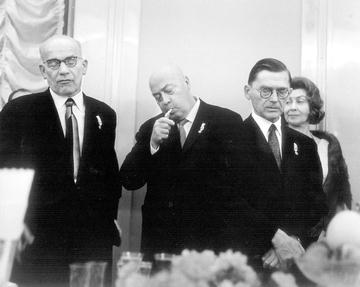
Communist Poland's elite:
Wladyslaw Gomulka, Jozef Cyrankiwicz, Aleksander Zawadzki, Nina AndryczIn 1980 he made the exhibition "Light Theatre" about important European theatre festivals like these in Nancy, the Fools Festival in Amsterdam and the Theatre of the Nations in Hamburg. In 1982 he has begun to contribute to the German "ART" magazine by publishing very personal documentation of the achievements of Polish and foreign artists. The other big exhibition of which Rolke was main originator and executor was the collective presentation called "Violence, Sex, Nostalgia". This controversial show was opened in 1989 in Stara Gallery ZPAF in Warsaw.
Since some years now Tadeusz Rolke is contributing also to the weekly magazine of "Gazeta Wyborcza". He presents there photographic reports like this about the opening of the exhibition and visit of Edward Krasinski in Wolyn region and some other photographs documenting Polish contemporary art.
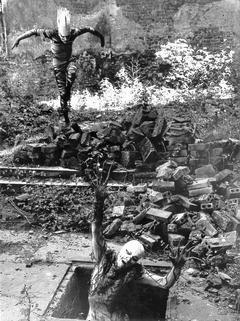
Wroclaw's Pantomime Theatre
"The sixties"
The photographs of Tadeusz Rolke shown at this exhibition are only a small part of what he did during over 40 years of his professional photographic life. These pictures of the 60's have definite documentary character, that didn't mellowed with years. Banal sometimes scenes show warmth and involvement in common people. This is why the protagonists of these photographs are ordinary people and children - the most natural actors of these miniature essays. Poetic atmosphere of these black and white pictures allows us to immerse into not so distant past and to recall fragments of time that go away irrevocably. This kind of photography which emphasizes human values have its great masters like Cartier-Bresson, Doisneau, Robert Frank, Harry Callahan.
Odra River Jazz Festival in Wroclaw 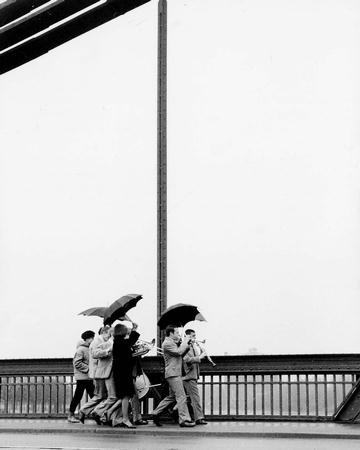
In Poland achievments of the photographers cooperating with "Swiat" weekly (Wladyslaw Slawny, Jan Kosidowski, Wieslaw Prazuch, Konstanty Jarochowski) or with "Polska" monthly (Marek Holzman, Piotr Baracz, Irena Jarosinska) also will have their place in the history of this kind of photography. The work of Tadeusz Rolke, somewhat detached and revealing specific sense of humour and rendering well the mood of these years, belongs to them too. Maybe because of that their atmosphere we like so much to look at these photographs today, in the days of virtual realities and digital transformations of pictures. They touch us not only with their poetic mood but also because they are charged with the truth of this period, the truth which is still present in our memories.English translation: Krzysztof Wojciechowski
Tadeusz Rolke studied History of Art at the Catholic University in Lublin and Warsaw University. He lives in Warsaw.
Fot. W.Gorlewski/GW.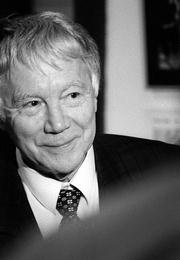
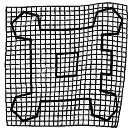
The exhibition of Tadeusz Rolke "I photographed the 60's" was presented in CSW from June 17 until Sept. 14, 1997.
At the same time another Rolke's exhibition - "Made in Germany" - was hosted by the Goethe Institute in Warsaw.See also: Tadeusz Rolke in Wilno, Lithuania (in Polish)
Copyright © 1997-2012 Marek Grygiel / Copyright for www edition © 1997-2012 Zeta-Media Inc.
e-mail: fti@zeta-media.com